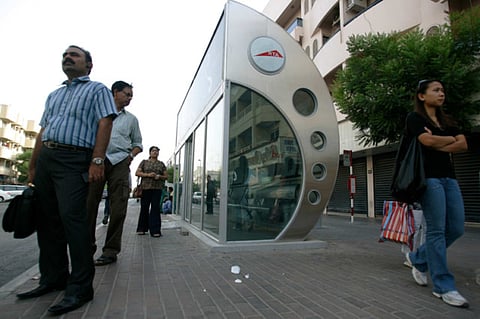Dubai property values ride on transport links
Consistent gains for communities with optimum transport connections

The Dubai transport network has been lauded across many forums. With a combination of a metro, bus and taxi system, the city manages to make commuting possible for millions of residents.
It is, however, difficult to ignore the selective development in city’s infrastructure, particularly the bus and metro system, which influences the value of a property considerably.
Positivism spurred by last year’s uptrend in the real estate industry has increased debate about sustainability of real estate values in the emirate. Investors, however, have been selectively generous and many properties still remain way-off their radar. Properties located in central locations surrounded by neighbourhood amenities and well-connected with public transport remain most sought after.
The real estate mantra of “location” has never been more important. Traditionally, presence of good schools and neighbourhood amenities were the only crucial factors in selecting property. However, emerging research has indicated that availability of transportation options support sustainability of property values.
According to a survey done in the US, although property values declined substantially between 2006 to 2011, properties close to public transit showed significantly stronger resiliency. In Boston, residential property in the rapid-transit area outperformed other properties in the region by 129 per cent. In the Chicago public transit area, home values performed 30 per cent higher than other homes the region; in San Francisco, 37 per cent higher; Minneapolis-St Paul, 48 per cent; and in Phoenix, 37 per cent.
For many, buying or renting a property conveniently located within easy reach of work, schools or university is a major consideration. The recession added another dimension to these discussions by emphasising the economic implications of transportation choices.
Many people chose public transport to avoid the hassle of commuting through traffic congestion. Shorter commutes and more walkable neighbourhoods matter to a growing number of people, especially those living in metro areas.
An excellent illustration of this is the Discovery Gardens Community, which although being far from the city centre is well populated. Since the development of Dubai Metro and emergence of neighbourhood amenities rents have gone up by 30 per cent across the development. Much of it can also be attributed to the overall expansion of retail and other conveniences in the vicinity.
However, community development remains partial in new developments. Residential areas such as Jumeirah Village, Dubai Sports City and Dubai Silicon Oasis suffer from inaccessibility issues even after completion of road infrastructure.
Public transport remains elusive forcing residents and visitors to spend considerably on transportation. These issues reduce the appeal of a development as an ideal community and affect real estate negatively.
Connectivity of the new developments must be stressed upon to enhance overall appeal of a community. Well-connected neighbourhoods provide residents with a relaxed lifestyle since commuting is a non-issue. This might induce prospective dwellers to pay a premium for properties that allow them to enjoy a desired lifestyle.
As industry leaders ponder on ways to stimulate interest in the real estate market, it would be a good start to integrate new neighbourhoods with the rest of the city’s public transport mechanism. This would require considerable investment in transportation options; however, with local communities benefiting from regional transit investment, there is an opportunity to share the costs of building new transit systems.
Public-private partnerships offer a unique means of funding from those who benefit from a transit system’s presence and operation. The benefit of a stable and reliant public transport system also extend to many economical, social and policy issues.
— The writer is the country manager for the UAE at Chesterton International.
Sign up for the Daily Briefing
Get the latest news and updates straight to your inbox



